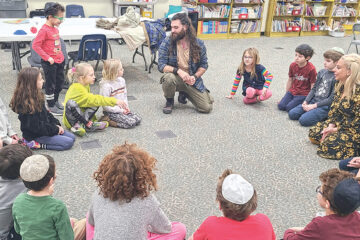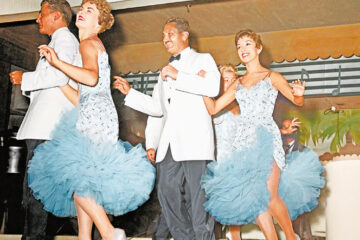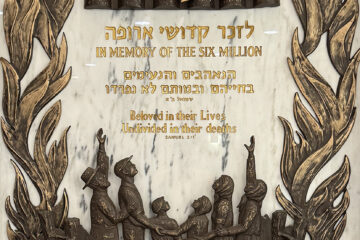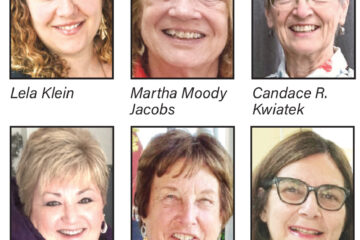Beth Jacob presents play about survivor & daughter
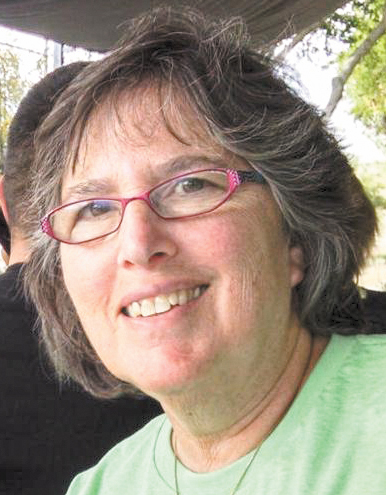
Playwright will discuss The Interview after matinee
By Marshall Weiss, The Dayton Jewish Observer
When second-generation Holocaust survivor Helene Gordon saw Faye Sholiton’s play The Interview at Actor’s Theatre Fairborn in early 2020, she felt like she was reliving her childhood.
The drama is about a Holocaust survivor and her daughter.
“Never did he really speak a lot about his experiences of two years in the forests of Poland to me and my siblings,” Gordon said of her father. “We got bits and pieces. It was not until my two nephews in Cincinnati wanted my dad to share his story.”
Gordon raved about the play to Helen Halcomb, also a child of survivors. Both are members and on the board of Beth Jacob Congregation.
Through a Jewish Federation Innovation Grant, the synagogue will present two performances of the play, directed by Brian Sharp, on Sunday, Sept. 18. Sharp directed the Fairborn production.
Playwright Sholiton will attend both performances, which are free. She’ll lead a discussion of The Interview following the matinee.
The Interview and Sholiton have strong ties to Dayton: 25 years ago, it won Dayton Playhouse’s Futurefest.
Since then, The Interview has had more than three dozen readings and staged productions across the United States.
A prolific playwright and founding artistic director of Cleveland’s Interplay Jewish Theatre — Sholiton has credited The Interview’s success to the opportunity Futurefest gave her to bring it to an early life and shape it in Dayton.
“It’s such a safe space to bring a new work into the world,” Sholiton said of her Futurefest experiences in a previous interview with The Observer. “I called it a playwright’s fantasy camp.”
Over the years, she has returned to Futurefest as an adjudicator and to watch other playwrights in action.
She said the impetus for The Interview came from interviewing Holocaust survivors and their children for the Cleveland Jewish News, and her work for Steven Spielberg’s Survivors of the Shoah Visual History Foundation, now the USC Shoah Foundation — The Institute for Visual History and Education.
“The play is full of moments that people shared with me when I was a journalist,” Sholiton said. “My reporter’s notes really gave me so much. I saved all these interviews that I have done with survivors and their children. I had years of those interviews to look back on and see those moments that were so powerful and so revealing, and so simply stated. I learned from the interviews to suspend judgment. As one survivor said on a taped testimony that I saw, ‘If you licked my heart, it would poison you.’”
Two Holocaust survivors she interviewed had estranged children.
“It certainly was not the rule; it was the exception,” Sholiton says. “I stumbled on what happens in any home where there’s something you can’t talk about. And that is the crux of it: that when you can’t really talk about something, you can’t really talk about anything.”
“The premise of the play is what every child of a survivor goes through,” Halcomb said, “how to talk and ask the questions without being hurtful (when) bringing up hard memories, and to be respectful.”
Gordon said The Interview “also tells us the survivor wants a better life for next generations. In knowing true survivors, that was their goal in the ‘second take’ on their lives.”
“I feel that with the open rise of antisemitism and increase of hate crimes, the more we expose people and make them aware (of the Holocaust), the better we are in combating prejudice,” Halcomb added.
Beth Jacob Congregation presents The Interview, a play by Faye Sholiton, directed by Brian Sharp, Sunday, Sept. 18, 2:30 and 7 p.m., 7020 N. Main St., Harrison Twp. Admission is free, through an Innovation Grant of the Jewish Federation. R.S.V.P. to 937-274-2149. Sholiton will lead a discussion about the play following the 2:30 p.m. performance.
To read the complete September 2022 Dayton Jewish Observer, click here.


